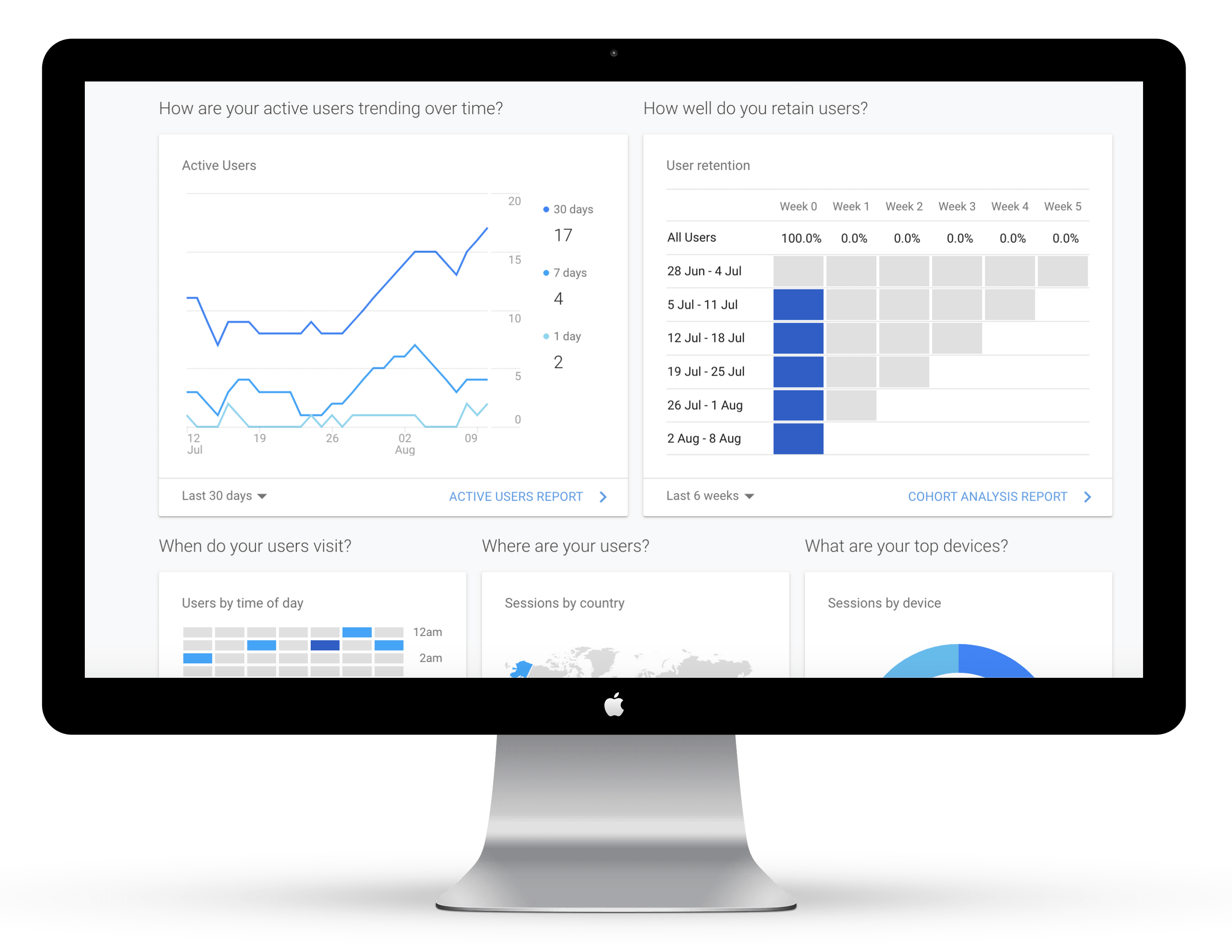
How To Find Your Dream Job
In the pursuit of a fulfilling career, finding your dream job is often the ultimate goal. However, navigating the job market can be overwhelming without a clear strategy. To embark on this journey successfully, it's essential to develop a systematic approach tailored to your unique aspirations and qualifications. By following a comprehensive checklist, you can methodically identify opportunities, leverage your strengths, and ultimately secure the job that aligns with your passions and ambitions. This checklist serves as a roadmap, guiding you through the essential steps necessary to uncover and pursue your dream job.
Subscribe to the Newsletter
Join to receive one tip to build, manage and grow your career first monday every month
Heading
#1: Building Your Financial Foundation
What is Financial Literacy and Why is it Important?
Financial Literacy: Understanding how money works, how to manage it, and how to plan for the future.
Impact of Financial Decisions: Every financial decision has an impact on your life – from everyday spending to long-term goals like retirement.
Setting Financial Goals:
Short-term goals: Saving for a vacation, a new gadget, etc.
Long-term goals: Buying a house, retirement, children's education.
SMART Goals: Specific, Measurable, Achievable, Relevant, and Time-bound.
Budgeting Basics
Track your Income: Salary, wages, side hustles, etc. Use a paystub or bank statements.
Track your Expenses: Everything you spend money on (fixed expenses like rent and utilities, variable expenses like groceries and entertainment).
Categorize expenses (needs vs. wants).
Simple Budgeting Methods:
Pen and paper Free budgeting apps (Mint, YNAB, etc.) Spreadsheets
Living within Your Means: Do not spend more than you earn.
The 50/30/20 Rule (Optional):
50% of income on needs (rent, food, utilities)
30% of income on wants (entertainment, dining out)
20% of income on savings and debt repayment.
Understanding Your Paycheck
Gross Pay vs. Net Pay:
Gross Pay: Your total earnings before deductions.
Net Pay: The amount you actually receive after taxes, deductions, and contributions have been taken out.
Common Deductions: Income taxes (federal, state, local) Social Security and Medicare taxes Health insurance premiums Retirement plan contributions
Understanding Paystubs: Breakdown of your earnings, deductions, and net pay. Look for key information like YTD (year-to-date) earnings and contributions.


#2: Building Your Savings
The Power of Saving
Emergencies: Unexpected events like car repairs, medical bills, or job loss. A savings cushion helps you weather these storms without going into debt.
Short-Term Goals: Down payment on a car, vacation, home improvement project. Saving helps you achieve these goals without relying on credit cards.
Long-Term Goals: Retirement, child's education. Starting early and saving consistently allows your money to grow over time through compound interest.
Savings Account Options
Checking Accounts: Designed for everyday transactions (debit card purchases, bill payments) Generally offer low or no interest on your balance.
Savings Accounts: Designed for saving money and earning interest. Interest rates vary depending on the bank and account type. Regular
Savings Accounts: Easy access with lower interest rates.
Money Market Accounts: May offer slightly higher interest rates but have minimum balance requirements and limited transactions per month.
Certificates of Deposit (CDs): Lock your money in for a fixed term (e.g., 6 months, 1 year) in exchange for a guaranteed higher interest rate. Early withdrawal penalties apply.
Choosing a Savings Account: Consider your needs (access to funds, interest rate) Look for accounts with no minimum balance requirements or monthly fees.
Developing a Saving Habit
Pay Yourself First: Allocate a portion of your income (even a small amount) to savings automatically before you start spending. Set up automatic transfers from your checking account to your savings account.
The 52-Week Challenge (Optional): Save a specific amount each week for a year (starts with $1 in week 1, $2 in week 2, etc.) Fun way to save a significant amount by the end of the year.
Challenge Yourself: Implement “no-spend” days or weeks to free up extra cash for savings. Find creative ways to save, like putting spare change in a jar or using cash-back apps. Track Your Progress: Monitor your savings goals and celebrate your milestones.
Bonus Tip:
Explore employer-sponsored savings programs or Payroll Deduction where your employer may contribute matching funds to your savings.
By following this checklist, you can methodically explore your options, network effectively, and present yourself as a strong candidate for your dream job. Remember to stay patient and adaptable as you navigate the job search process.
#3: Managing Debt Wisely
Understanding Different Types of Debt
Good Debt vs. Bad Debt:
Good Debt: Debt that helps you build assets or improve your future financial well-being (e.g., student loans for education, mortgage for a home).
Bad Debt: Debt that carries high interest rates and does not provide lasting value (e.g., credit card debt for everyday purchases, payday loans).
The Goal: Minimize bad debt and use good debt strategically.
Credit Card Basics
Understanding Credit Cards: A revolving line of credit you borrow against with monthly payments and interest charges. Key Terms:
Credit Limit: The maximum amount you can borrow on the card.
Interest Rate: The annual percentage rate (APR) charged on your outstanding balance.
Minimum Payment: The minimum amount you must pay each month to avoid late fees (but only pays off a small portion of the debt).
Responsible Credit Card Usage: Pay your balance in full each month to avoid interest charges. Only borrow what you can afford to repay on time. Avoid impulse purchases with your credit card.
Building a Good Credit History
Credit History: A record of your borrowing and repayment behavior.
Credit Score: A numerical representation of your creditworthiness (used by lenders to determine loan approvals and interest rates).
Factors Affecting Credit Score:
Payment History (most important factor) – on-time payments on loans and credit cards Credit Utilization Ratio – amount owed divided by credit limit (maintain low utilization)
Length of Credit History – the longer the better Credit Inquiries – too many inquiries can lower your score (minimize unnecessary inquiries)
Strategies to Improve Credit Score:
Make all your loan and credit card payments on time, every time.
Pay down existing debt to lower your credit utilization ratio.
Avoid maxing out your credit cards.
Maintain a good mix of credit types (e.g., credit cards, installment loans).
Bonus Tip:
Monitor your credit report regularly for errors and report them to the credit bureaus if you find any. You can get a free credit report from each of the three major credit bureaus (Experian, Equifax, TransUnion) annually.


#4: Investing for the Future
The Importance of Early Saving and Investing
Time Value of Money:
The concept that money has a greater value the sooner you receive it due to the power of compound interest (interest earned on interest). Starting early allows your money to grow exponentially over time.
Investing for Different Goals:
Short-Term Goals (3-5 years): Focus on lower-risk, more liquid investments (e.g., savings accounts, money market accounts).
Long-Term Goals (10+ years): Consider higher-risk, higher-potential-return investments (e.g., stocks, mutual funds) as you have a longer time horizon to weather market fluctuations.
Understanding Investment Options
Investing vs. Speculating:
Investing: Putting your money into assets with the expectation of long-term growth.
Speculating: Short-term, high-risk attempts to profit from market movements.
Benefits of Diversification: Not putting all your eggs in one basket. Spread your investments across different asset classes (stocks, bonds, real estate) to minimize risk.
Simple Investment Vehicles:
Mutual Funds: A professionally managed pool of funds that invests in a variety of stocks, bonds, or other assets.
Exchange-Traded Funds (ETFs): Similar to mutual funds, but trade like stocks throughout the day.
Dollar-Cost Averaging: Invest a fixed amount of money at regular intervals (e.g., monthly) regardless of the share price, which helps to average out the cost per share over time.
Seeking Professional Financial Advice (Optional)
When to Consider a Financial Advisor: Complex financial situations Need for personalized investment strategies Lack of confidence in managing your own investments.
Finding a Reputable Financial Advisor: Ask for recommendations from friends, family, or colleagues. Check their credentials and experience. Understand their fee structure.
Bonus Tip:
Utilize online investment platforms that offer fractional shares, allowing you to invest in small amounts of expensive stocks and build a diversified portfolio over time.
#5: Financial Security Essentials
Building an Emergency Fund
The Importance of an Emergency Fund: Provides a safety net for unexpected expenses and helps avoid going into debt.
Recommended Emergency Fund Amount: 3-6 months of living expenses to cover unexpected costs like car repairs, medical bills, or job loss.
Funding Your Emergency Fund: Allocate a portion of your savings consistently. Consider using tax refunds or windfalls to boost your emergency fund.
Understanding Insurance
Types of Insurance: Protects you from financial losses in case of unforeseen events.
Common Types of Insurance:
Health Insurance: Covers medical expenses in case of illness or injury.
Life Insurance: Provides financial benefits to your beneficiaries upon your death.
Disability Insurance: Replaces income if you become disabled and unable to work.
Auto Insurance: Protects you from financial liability in case of car accidents.
Homeowners Insurance/Renters Insurance: Protects your property and belongings from damage or loss.
Comparing Insurance Plans:
Get quotes from multiple insurance companies. Compare coverage options and deductibles (the amount you pay out-of-pocket before insurance kicks in). Choose a plan that fits your needs and budget.
Planning for Retirement
The Importance of Planning Early: The sooner you start saving, the more time your money has to grow for retirement.
Social Security: Provides a basic level of income in retirement, but may not be enough to cover all your expenses.
Employer-Sponsored Retirement Plans (Optional):
Plan A: Employees contribute a portion of their salary before taxes, with potential employer matching contributions. P
lan B: Similar to Plan A, but for employees of non-profit organizations and public schools.
Benefits of Employer-Sponsored Plans: Tax advantages - contributions grow tax-deferred and may be tax-deductible.
Contributing to Retirement Plans: Contribute as much as you can afford, especially if your employer offers matching contributions (free money!).


#Bonus: Financial Scams and How to Avoid Them
Why Scammers Target Finances: Financial information is valuable and can be used to steal your money or identity.
Common Financial Scams:
Phishing Scams: Deceptive emails, texts, or calls impersonating legitimate institutions (banks, credit card companies) to trick you into revealing personal information.
Investment Scams: Promises of unrealistic high returns with little or no risk.
Get-Rich-Quick Schemes: Promise easy money without effort, often through pyramid schemes or fake work-from-home opportunities.
Debt Collection Scams: Aggressive tactics to pressure you into paying a debt you may not even owe.
Red Flags of a Scam:
Urgency and Pressure: Scammers create a sense of urgency to cloud your judgment.
Guaranteed High Returns: If something sounds too good to be true, it probably is. Threats and Intimidation: Legitimate companies will not use scare tactics. Requests for Personal Information: Never share sensitive information over email, text, or phone unless you initiated the contact. Protecting Yourself from Scams: Be Wary of Unsolicited Contact: Do not click on links or open attachments in suspicious emails or texts. Verify Information Directly: Contact the institution directly using a phone number you know is correct, not one provided in the suspicious communication. Strong Passwords and Two-Factor Authentication: Use complex passwords and enable two-factor authentication for added security on your online accounts. Shred Sensitive Documents: Do not throw away documents with account numbers or personal information before shredding them. Be Skeptical of Get-Rich-Quick Schemes: Research any investment opportunity before investing your money.
If You Think, You've Been Scammed:
Report the Scam: Report the scam to the Regulatory Authority Contact Your Financial Institution: Report any suspicious activity on your accounts immediately. Consider Identity Theft Protection: If you believe your identity may have been compromised, consider identity theft protection services.
Remember:
If it sounds too good to be true, it probably is. Take your time, do your research, and never feel pressured to make a financial decision on the spot.
Summary: Find Your Dream Job
Finding your dream job requires a proactive and strategic approach. The checklist provided offers a structured framework to help you navigate the process effectively. It begins with self-assessment, encouraging you to reflect on your skills, interests, and values. From there, it guides you through researching potential employers, networking, optimizing your resume and cover letter, preparing for interviews, and negotiating job offers. By following this checklist diligently, you can enhance your chances of discovering and landing a job that not only meets your professional goals but also brings you a sense of fulfillment and satisfaction. Remember, finding your dream job is a journey, and this checklist is designed to be your trusted companion along the way.
Leaders are Alone at the Top. Don't Struggle, Take Help

Whenever you're ready, there are 4 ways I can help you:
-
Online Courses
-
100 Days Mastermind
-
One-on-One Coaching
-
Read My Book
I will never spam or sell your info. Ever.